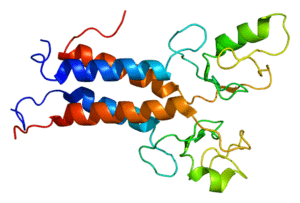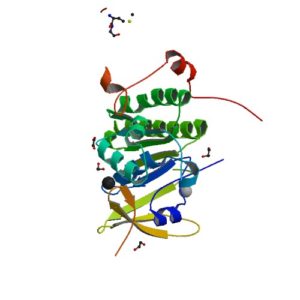
This is a guest post by Julie Burton. It was originally published on her blog, Unscripted Mom.
With Angelina Jolie’s recent disclosure of her decision to have a double mastectomy due to her discovery that she carries the BRCA 1 gene mutation, many women may be taking a closer look at their genetic history. I uncovered mine several years ago as I sought to trace the trail of breast and ovarian cancer, which killed my paternal aunt at the age of 47, two great aunts and had struck two cousins, who are currently survivors.
I made a phone call to a cousin (who was diagnosed with breast cancer at the age of 30), and we discussed our lineage and how this gene mutation seemed to have been passed down through the generations on our paternal side of the family. I hung up the phone and concluded that if we were right, then that gene mutation could have also landed…in me. As a wife and a mother of four children, two daughters and two sons, I knew I wanted and needed some concrete answers.
I called a genetic counselor and we talked at length about the cancer present in my family. She explained that because I am of Ashkenazi Jewish decent, my risk of carrying the BRCA1 or the BRCA2 gene mutation is five times higher than that of the general population, and 60% of women who do carry the BRCA 1 or 2 gene mutation develop breast cancer. She also mentioned that it might make sense to talk with my father about being tested because this gene mutation would have come from his lineage and it would be helpful to know whether or not he was a carrier, whereby determining if my sister and I were truly at risk. My immediate thought was, “My dad, undergo genetic testing to find out if he passed a breast cancer gene mutation to his daughters when he had recently buried his beloved 47-year-old baby sister who died from this disease— how in the world can I ask him to do that?!”
I left the office and he went to the lab for the test. We were told we should expect a call in about four weeks. I worried—for myself and for my sister. I made a plan that I would be proactive and have a mastectomy and a hysterectomy if I carried the gene. I was determined to stay ahead of the bullet.
A little over a month later, my dad got the call that the results were back from the lab but that no results, positive or negative, would ever be given over the phone. The next day, my mom, my dad, my sister and I sat down in the counselor’s office and the counselor divulged the results to my father,
“You have the BRCA 1 gene mutation.”
“There is a 50/50 chance that each of your daughters could have it.”
My mom cried. My sister and I were in shock.
As we all walked slowly out of the office, my dad mumbled, “I’m sorry.” “It’s not your fault, dad,” was all I could say as my heart pounded so hard I thought it would jump out of my chest.
We stopped at the front desk to schedule a date for my sister and I to have our blood test. “Is there any way we could have it done now,” I asked as my hands shook and my mind raced. “I can take you and your sister back one at a time in 15 minutes, does that work?” “Yes,” I said without even looking to my sister for approval. She hadn’t said a word.
We left our blood samples and left the office feeling completely depleted. I glanced over at the University of Minnesota hospital where my paternal aunt, who was not much older than I was now, had taken her last painful breath, leaving her two young sons motherless and her husband a widower. The feeling of pain and loss resurfaced, and was now mixed with terror.
Three weeks later, we got the call to come in for the results. I got to the office and my sister and her husband were at the desk. “They can’t see us together, we have to go in one at a time,” she said to me in almost a whisper. “Okay, well David (my husband) isn’t here yet so you go first,” I told her.
It was fast. She was in and out of the consultation room in less than five minutes. She walked over to me as I paced the waiting room. She looked at me, but kept her eyes slightly averted from mine, and she shook her head, “I don’t have it.” “Oh thank g-d,” I said as I hugged her. But she still couldn’t look me in the eyes.
I knew why.
Still no sign of my husband. Both my sister and brother-in-law offered to go in with me. “No, I am okay.” I couldn’t wait another second so the front desk person escorted me to the tiny consultation room and I waited for the counselor.
“All I can say is that you two are very lucky,” she said as she walked into the room and took a seat across from me. “I often see cases where the gene gets passed down to one daughter and not the other/s but I rarely see cases where none of the children inherit the gene mutation from a parent who has it.”
“So I don’t have the BRCA 1 gene either?”
“No, you don’t.”
I don’t remember what I said to her. Maybe I hugged her. I came rushing out of the room to find my husband right outside the door on the verge of tears. “You gave me the wrong address. Are you okay,” he asked eagerly. I told him the news and when we got out to the waiting room, my sister was not sure what to make of our teary eyes. “I don’t have it either,” I assured her. As we embraced each other, we fully exhaled, as we had not done for over a month. We immediately called our parents who were out of town and anxiously awaiting our call.
“I prayed and prayed for this, I told g-d that nothing else mattered,” my father said, his voice quivering with emotion.
Since this ordeal, several of my close friends have been diagnosed with breast cancer. Some have lost their breasts and their ovaries to this horrible disease, and this week I attended a funeral for a friend (a mother, a wife and a daughter), in her early 50s, who battled breast cancer for 20 years. I have other friends who have tested positive for the BRCA gene mutation. Some of them, like Angelina Jolie, have made changes to their bodies to try to increase their odds, and some have chosen not to and are being proactive by having frequent mammograms.
It is essential that if there is a history of breast and/or ovarian cancer in your family, especially if you are of Ashkenazi Jewish decent, you must not be afraid to ask questions, and dig into your family’s health history. Contrary to an old belief (one that even my OB told me many years ago), that breast cancer can only be “passed on” through the mother’s side of the family. Well, as we know now, this could not be further from the truth. Men can carry this gene mutation, and although their risk of breast (yes, men can get breast cancer) and prostate cancer is still relatively low, early detection is key for them as well. Furthermore, fathers can pass this the gene mutation to their daughters, putting them at a much higher risk of developing breast and/or ovarian cancer.
Whether you see a pattern in your father’s, mother’s or spouse’s side of the family, do not be afraid to ask your loved ones to be tested so that everyone in the family can be better equipped to protect themselves from the cancer bullet and alert any offspring who may need to be tested. And please do not let fear stop you from being tested yourself.
This information could be a matter of life and death.
Julie Burton is an experienced writer specializing in any and all aspects of parenting, relationships and finding balance. She is a contributing blogger for SheTAXI, you can find her blogs about motherhood on her website, and is a soon-to-be author of a tell-all book for mothers. She serves on the board of NCJW (National Council of Jewish Women), and is an active volunteer for JFCS (Jewish Family and Children’s Service) and Breck School in Minneapolis. She lives in Minnetonka, MN, with her husband of 20 years and her four children.



